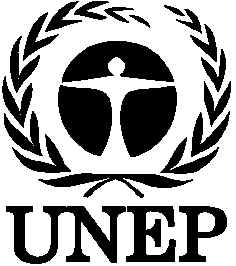

Environment
Programme
GENERAL
UNEP/POPS/INC.1/INF/13
29 June 1998
ENGLISH ONLY
| UNITED NATIONS |
EP |
|
United Nations Environment Programme
|
Distr. GENERAL UNEP/POPS/INC.1/INF/13 ENGLISH ONLY |
INTERGOVERNMENTAL NEGOTIATING COMMITTEE FOR AN
INTERNATIONAL LEGALLY BINDING INSTRUMENT
FOR IMPLEMENTING INTERNATIONAL ACTION ON
CERTAIN PERSISTENT ORGANIC POLLUTANTS
First session
Montreal, 29 June-3 July 1998
Item 4 of the provisional agenda
2/1. PROCEDURE FOR DETERMINING NON-GOVERNMENTAL ORGANIZATIONS'
COMPETENCE AND RELEVANCE TO THE WORK OF THE
PREPARATORY COMMITTEE
Recommendation of the Preparatory Committee for the United Nations
Conference on Environment and Development
UNITED NATIONS GENERAL ASSEMBLY
Forty-sixth session
REPORT OF THE PREPARATORY COMMITTEE FOR THE UNITED NATIONS CONFERENCE ON
ENVIRONMENT AND DEVELOPMENT
25 May 1991
Decision 2/1. Procedure for determining
non-governmental organizations’ competence and relevance
to the work of the Preparatory Committee
At its 28th meeting, on 18 March 1991, the Preparatory Committee for the United Nations Conference on Environment decided on the following procedure for determining non-governmental organizations’ competence and relevance to the work of the Preparatory Committee:
1. Non-governmental organizations in consultative status with the Economic and Social Council and others desiring to be accredited for participation in the meetings of the Preparatory Committee, in accordance with decision 1/1 of the first session of the Preparatory Committee as endorsed by General Assembly resolution 45/111 of 21 December 1990, may apply to the Conference secretariat for this purpose.
2. All such applications must be accompanied by information on the organization’s competence and relevance to the work of the Preparatory Committee, indicating the particular areas of the Conference preparations to which such competence and relevance pertains and which could include, inter alia, the following information:
(a) The purpose of the organization;
(b) Information as to the programmes and activities of the organization in areas relevant to the Conference and the preparatory process, and in which country(ies) they are carried out;
(c ) Copies of its annual reports with financial statements, and a listing of governing body members and their country of nationality;
(d) In respect of membership organizations, a description of its membership, indicating total numbers and their geographical distribution;
(e) Non-governmental organizations in consultative status with the Economic and Social Council shall be deemed to have satisfied these requirements to the extent that they have already provided such information to the United Nations.
3. In cases where the Conference secretariat believes, on the basis of the information provided in accordance with paragraph 2 above, that the organization has established its competence and relevance to the work of the Preparatory Committee, it will recommend to the Preparatory Committee that the organization be accredited. In cases where the Conference secretariat does not recommend the granting of accreditation, it will make available to the Preparatory Committee the reasons for not doing so. The Conference secretariat should make its recommendations available to the Preparatory Committee at the start of the session.
4. The Preparatory Committee will decide on all cases within 24 hours of the Conference secretariat’s recommendations having been made available to its members. In the event of a decision not being taken within this time frame, interim accreditations shall be accorded until such time as a decision is taken.
5. A non-governmental organization that has been granted accreditation to attend a session of the Preparatory Committee may attend all its future sessions.